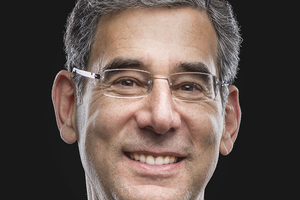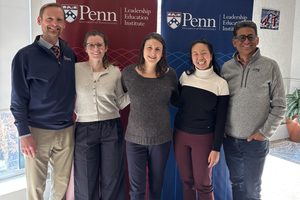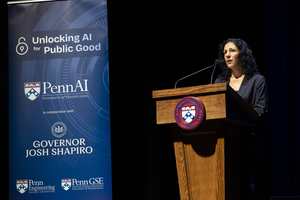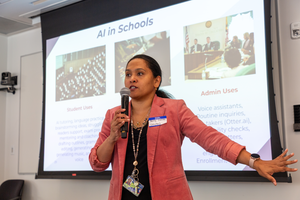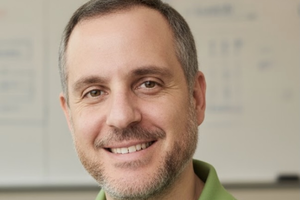Faculty Expert
-
Yasmin B. Kafai
Lori and Michael Milken President’s Distinguished Professor
Learning, Teaching, and Literacies Division
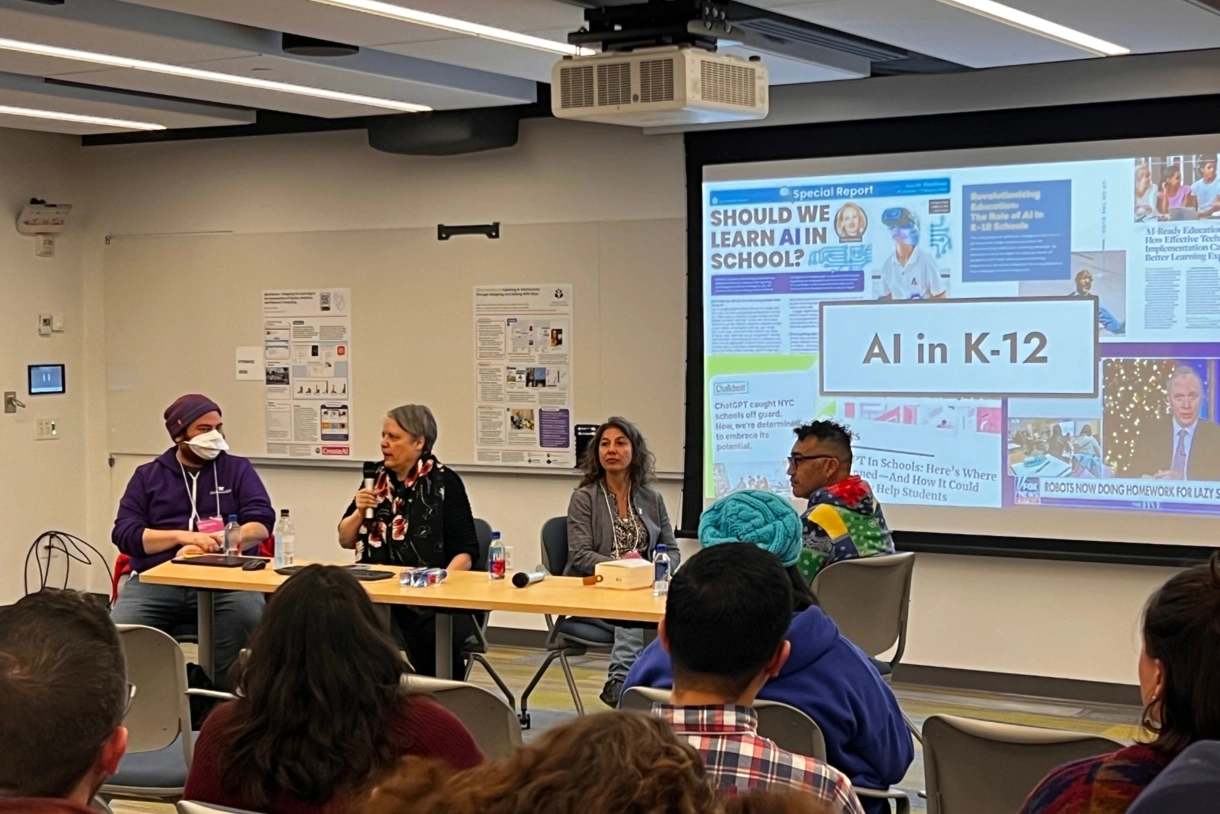
Create AI, a three-day workshop recently hosted at Penn GSE, brought together researchers, educators, and industry experts to explore a crucial yet under-discussed aspect of artificial intelligence (AI) in K–12 education: empowering students and teachers as creators, not just consumers, of AI technologies. Funded by the National Science Foundation (NSF), this workshop sought to address how students and teachers can actively engage in designing AI applications, fostering deeper learning and critical understanding of the technology shaping their world.
The event was led by Dr. Yasmin B. Kafai, Lori and Michael Milken President’s Distinguished Professor in the Learning, Teaching, and Literacies Division at Penn GSE, along with experts from Boston College, Brown University, the University of California, Berkeley, and the University of Washington. In her opening remarks, Kafai emphasized the need to shift the current AI discourse in education beyond agentic AI, which is primarily used to assist students in tasks like homework, assessment, and tutoring. Instead, the workshop focused on how students can create with AI, leveraging its potential for innovative learning experiences.
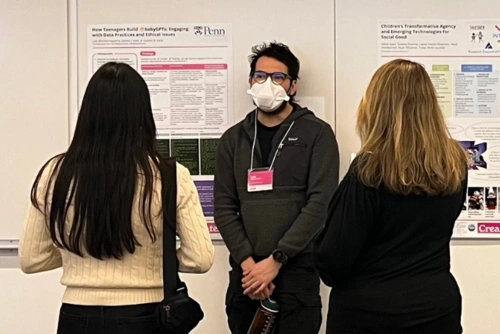
An example of such an initiative was highlighted by Luis Morales-Navarro, a doctoral student in Penn GSE’s Learning Sciences and Technologies program, who introduced a project where high school students built “baby GPTs” — their own small generative language models — to generate Marvel scripts, Shakespearean dialogues, and original narratives. This hands-on approach provided students with critical insights into AI systems, including their biases and limitations.
The workshop assembled participants from across the U.S. and Europe, including educators, doctoral students, senior faculty, and industry representatives from Google, Apple, and the Raspberry Pi Foundation. Discussions centered on how AI can be integrated into school curricula, what teachers need to facilitate AI creation in classrooms, and how learning outcomes should be assessed. Panelists also addressed ethical considerations, such as algorithmic bias and the importance of AI literacy in fostering responsible innovation.
As the public portion of the workshop concluded, organizers announced plans to release a comprehensive report summarizing key research directions, challenges, and open questions in AI education. This report, expected to be released by this summer, aims to guide future research, policy, and curriculum development in integrating AI as a hands-on, creative discipline in schools.
By shifting the focus from passive AI usage to active AI creation, Create AI is paving the way for a future where students are not just consumers of AI-powered tools, but informed, ethical, and innovative contributors to the field.
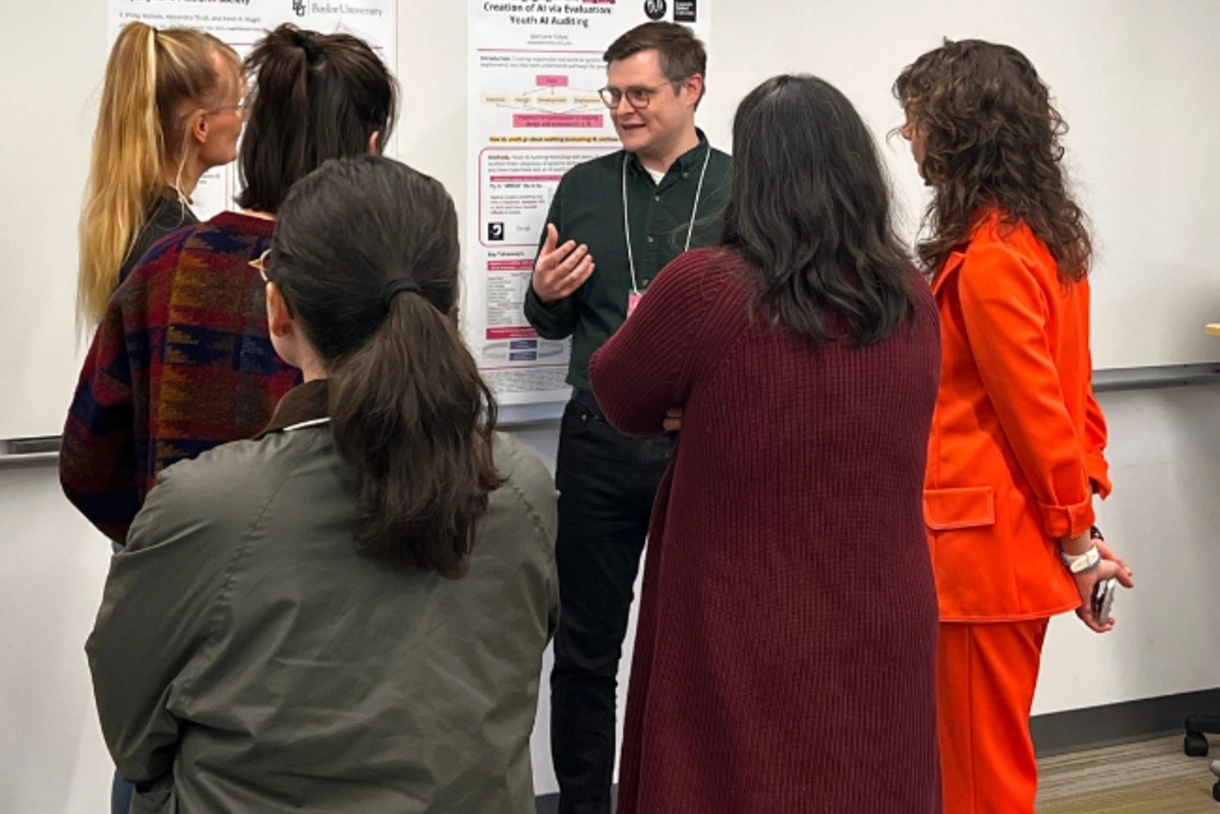
Media Inquiries
Penn GSE Communications is here to help reporters connect with the education experts they need.



